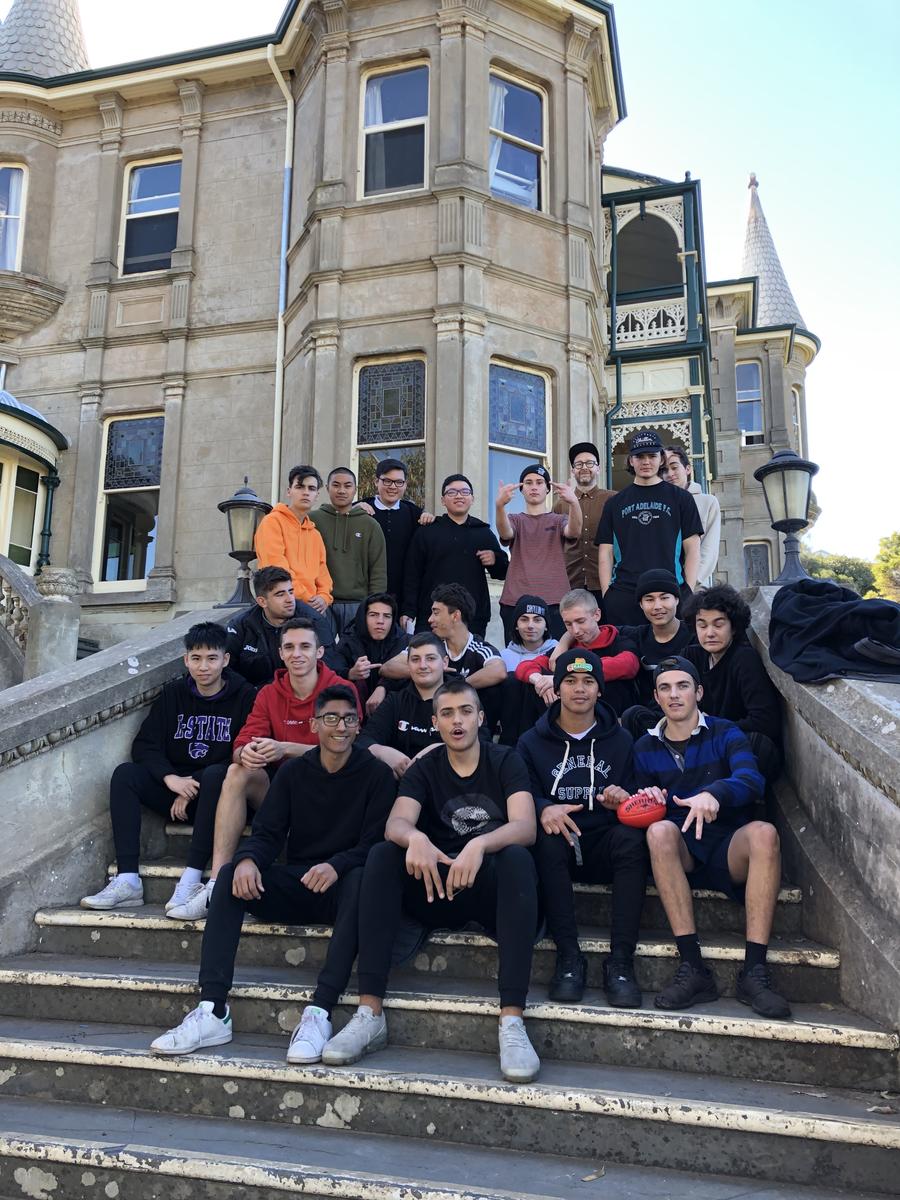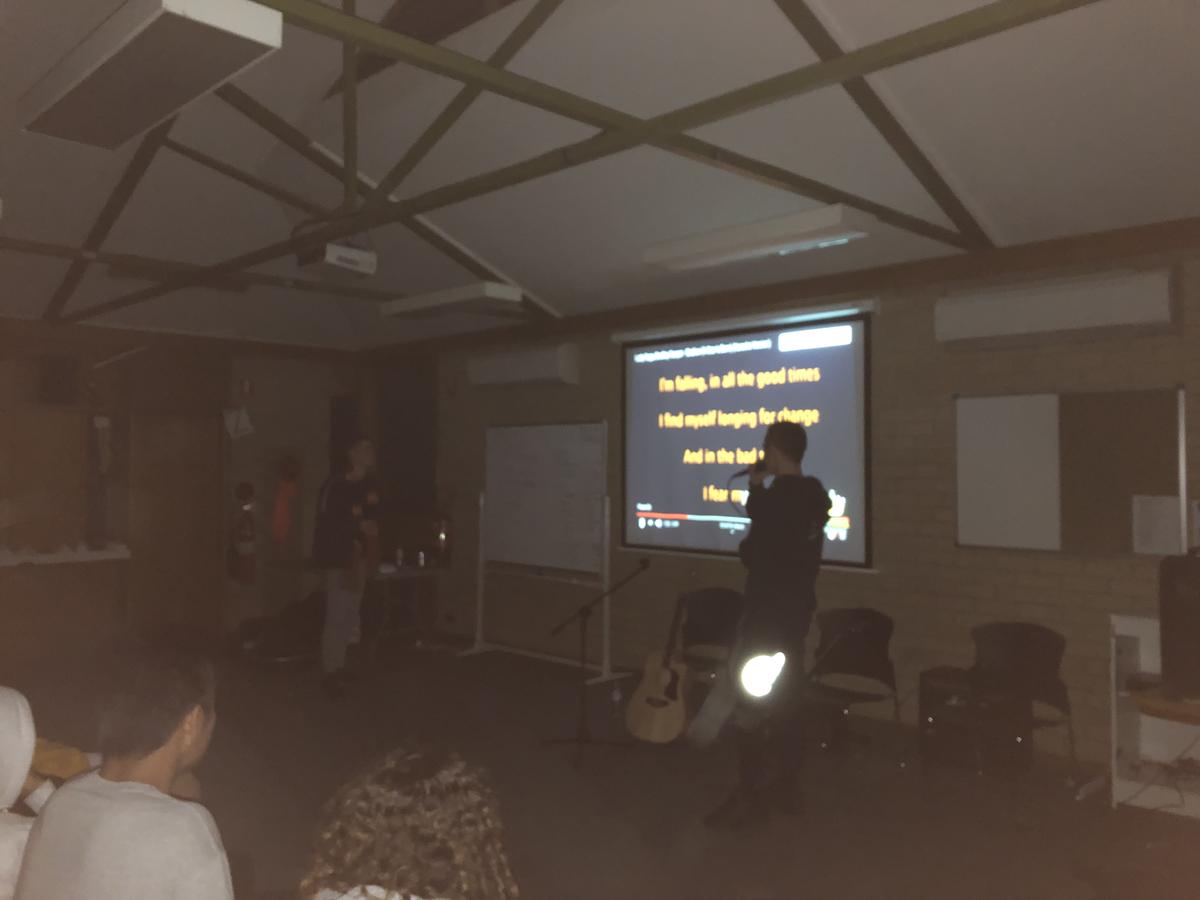Veritas - From the APRIM
Last week our Year 12s enjoyed their Retreat – a memorable moment in their Blackfriars journey

Veritas - From the APRIM
Last week our Year 12s enjoyed their Retreat – a memorable moment in their Blackfriars journey
Year 12 Retreat
It is very hard to clearly articulate the impact of the Year 12 Retreat on students because it is largely experiential and deeply spiritual, which is personal and unique for each individual. Regardless, the common thread is its unifying, strengthening and profoundly developmental effect; the students seem to rapidly pass through a barrier that separates adolescence and manhood, and the Holy Spirit manifests in the process, revealing extremes in emotion, courage in openness, and love through support. It is a long program that led to this transformation; a program that began in families, churches and other places of worship, religious education classes, previous retreats and school camps, all concentrated to these three days of Year 12, which is the most challenging year of schooling.
During the three days, students attended theme-based sessions run by our generous staff, who tied their own life experiences, often punctuated by tragedy and hardship, in with the theme of their presentations. In each case, without exception, students heard of their challenges in life, their ups and downs, and the reality of their own mortality. This is a reality that the maturing mind must confront. It is a mystery for which faith provides comfort and hope, and for which ritual inadequately attempts to capture and provide meaning. This is inevitably religious. Perhaps one inadvertent outcome of the retreat is a greater appreciation of the utility of religion during a period of life that is known to test one’s ties to religion.
Apart from hearing of life’s ups and downs, students participated in activities designed to encourage reflection on their deeper or hidden self, their past and their desires for the future. Naturally, such reflecting can bring past pain to the surface, and questions of the future can be troubling. The sessions also revealed to students that the future they wish for is often not what will occur, because there are so many factors beyond one’s control. It has been said: “if you want to make God laugh, tell Him your plans for the future.” Simultaneously, the sessions also revealed the profound strength of the individual to overcome adversity and adapt. One clear message of the retreat is the truly adult responsibility one has for themselves: to paraphrase the brilliant psychoanalyst Jordan Peterson: “clean your own room first before you attempt to change the world.” Of course, this is not original, as in the words of Christ: “first take the log out of your own eye, and then you will see clearly to take the speck out of your neighbour’s eye” (Matthew 7:5).
There are other truths to this profound instruction of Jesus. The truth just mentioned is the truth that one cannot help others without helping themselves first – take responsibility. Another truth in the instruction is regarding perception; a speck in your eye looks like a log – our own problems always appear the worst because we live them. Furthermore, the speck in one’s neighbour’s eye is indicative of its magnitude from your perspective – no amount of empathy can fully reveal the experience of another. And there is another truth in this instruction: it is the lack of clarity that exists when a problem causes blindness, and that this blindness often requires the healing of another. Jesus healed the blind, possibly physically, but definitely metaphorically. As His disciples, we are called to continue His work, so we are the healers.
It is this latter truth that emerged as most apparent in our wonderful Blackfriars Year 12 students on retreat. The two Thursday night sessions were polar opposites. The first was a Sacred Symbol liturgy in a candle-lit dark room, and students in turn presented a symbol while explaining why it was sacred to them. These included objects that had immense sentimental value and for many it triggered an emotional response. This was matched by the sympathetic peers who listened. After each student who wanted to present had finished, students rallied around each other in waves of support. They revealed to each other the challenges in their own lives, which is something that being adult forces one to confront. (The alternative is to not grow up, and that is not desirable or helpful for anyone.) Moreover, they also revealed their own healing love through acting with care and compassion toward their Year 12 brothers. They demonstrated the authentic Christian community of disciples that they are. The Holy Spirit worked through them to heal. It is fitting that, in this Easter season, we hear scripture of Jesus’ final instructions, including “love one another as I have loved you” (John 13:34). This is the strong underlying culture of a Blackfriars graduate. They are compassionate young men who exhibit care for each other, regardless as to the extent or quality of their shared history.
After a short break, students reassembled for the second night session – the Talent Show, which was both entertaining and amusing. Again, the Holy Spirit was at work as the students collectively shared the joy of celebration. The tears were gone and were replaced with communal laughter.
There are students who have reflected on this evening to then question: “what just happened to me?” This is the mystery that is impossible to fully articulate. It is the mystery of God at work in our lives. During the days leading toward the two Thursday night sessions, some students complained about having to hear the lessons of life stories of teachers and the wisdom of psychologists and clergy. These sessions were the explicit ones, with information being the source of the learning. It was only after the learning gained from the spiritual experience of Thursday night that the wisdom of the lead-up became clear. The complaints turned to compliments. The ‘penny dropped’ – life is real and confronting, full of mystery and with a level of human control that is deceivingly low. Hence the presence of the living and divine transcendence, who we call God, becomes something to search for, despite being infinitely illusive, but also something to surrender to. This is faith, and thus, the program culminates in something that crystallises faith formation.
To return to Matthew 7:5 again, another truth is the instruction to judge others with caution. One activity on retreat addressed the masks people wear in order to live or even just survive. Behind those masks are often people with enormous life challenges. Sometimes these manifest in certain behaviours. During the sacred symbol liturgy, students revealed their own challenges. Some revelations explain the way individuals can behave at times. We are called to act kindly. In the Lord’s Prayer, there is a line: “forgive us our trespasses, as we forgive those who trespass against us”. It is a tenet of our Christian faith. It is acknowledging our faults. It is reminding us that offending others at times is inherent in our nature. We share this human frailty, so to live life to the full we must also share forgiveness. It is humbling, and this humility is a mark of maturity, a giant leap from adolescence to adulthood.
For me, the retreat provided a sense of optimism for the future. Our Blackfriars Year 12s are rapidly approaching the end of school and a time of change. A time when they take adult responsibility for their own life – they must burden it first and the Pillars of Prayer and Study enable this. At Blackfriars we believe our program, culminating in retreat, also enables our graduates to burden others too – these are the Pillars of Community and Service.
It was a privilege to be on Year 12 Retreat. It is a special privilege to work with such generous, wise and caring staff, and I know our Year 12s share this appreciation. Thank you to Miss Alison De Souza, Ms Anthea Osborne, Mr Dan Winter, Mr Jak Francis, Mrs Dianne Bucciarelli, Mr David Ruggiero, MR Simon Cobiac, Mr Brett Knowles, Mrs Silvana Cardone-Muzik, Mrs Caitlin Graziano and Br William Loh OP.








Mr Matthew Crisanti
ASSISTANT PRINCIPAL: RELIGIOUS IDENTITY AND MISSION